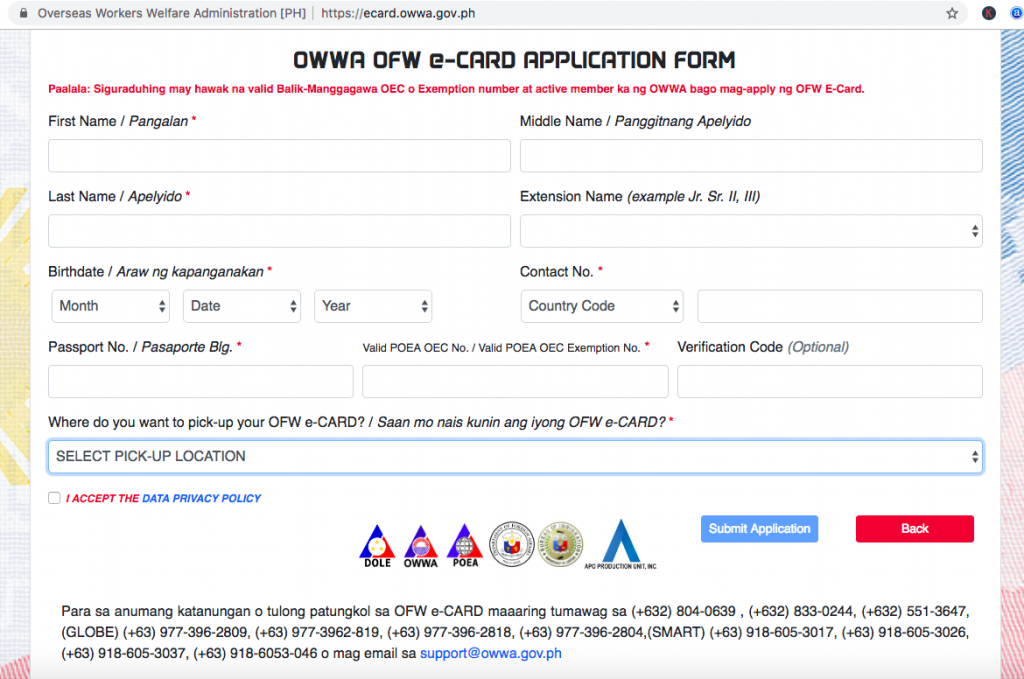Being an OFW is not easy. Aside from being thousands of kilometers away from home, you have to deal with homesickness, different culture, and money issues.
Yes, money issues. After all, working outside the Philippines is not always a guarantee that you will get a better, more stable life.
This is why it is important to manage your money wisely.
Normally, you would send money back home and let your family do the budgeting, which includes paying the bills. But if you want to be sure, you would do the paying yourself.
The question is how.
Thankfully, there are tons of e-payment platforms that will help you pay the bills wherever you are.
Online Banking Service
This is the beauty of online banking. Aside from allowing you to keep track of your accounts and how much money you have, you can also pay your utilities bills, government contributions, loans, and credit card bills by deducting the said amount on your account.
You may also set up an auto-debit arrangement so you don’t miss a payment every month, especially for those non-negotiable expenses. Just make sure you sign up for an online banking account with your bank of choice to avail of this service.
The good thing about online banking services is that they have mobile counterparts. Simply check and download the mobile app of your bank of choice and make it easier for you to transact using your phone.
In this case, BDO is more convenient. It has partnered with tons of companies, thereby allowing you to pay utilities bills wherever you are.
Bayad Center Online
This is another convenient way of paying your bills. Bayad Center supports various billers including electricity, water, government services, Internet, cable TV, real estate, financial services, tuition fee, and even memorial plans.
Instead of sending remittances back home, you can already pay your bills conveniently through this service. Just make sure you pay on or before the due date since the system won’t allow overdue payments.
Also, there would be cut-off, which means payments must be made before 8:00pm, Philippine time. Otherwise, the payment will be reflected the following day.
You may also download the mobile app to make payment more convenient.
Meralco Online
This is exclusively for Meralco payments. You can either use your credit card, debit card, GCash, Smart Money, or Paymaya to pay for your electric bill. You may also enroll your Meralco account under auto-debit arrangement wherein the bill will be deducted from your bank account every month.
The good thing about this facility is that you are up-to-date when it comes to your billing. Payment will be reflected a few minutes. Also, partial and advance payments may also be made.
Meralco Online has a mobile app that you can download for free.
PayPilipinas
Let’s face it. Even if you are an OFW, you are still entitled to pay government services like SSS and PAG-IBIG. These agencies may have satellite offices abroad but not all OFWs can easily go there since they may be far.
Thankfully, PayPilipinas addresses that concern by allowing OFWs to pay contributions and loans with SSS and PAG-IBIG.
Simply create an account and link your credit card so you can start making payments. They also have partner remittance facilities in the Philippines so you can simply transfer funds in your PayPilipinas wallet.
Moneygment App
The truth is there are many Filipinos who are considered as unbanked or does not have access to bank facilities. This is where Moneygment comes in.
Moneygment serves thousands of unbanked Filipinos including OFWs. You can pay bills such as electricity, water, government contributions, cable TV, credit card, and Internet among others.
You can pay directly from your Moneygment wallet or through fund transfer. it may take one to two working days for the payment to get posted, so make sure you pay before the due date.
Coins.ph
Did you know that there are more than 80 billers listed in this payment facility? From electricity to tuition fee, Coins.ph is a convenient way to pay off those expenses every month.
Still, you need to add funds to your Coins.ph account before you can make any transaction.
There are many convenient and easier ways to pay your bills regardless of where you are in the world. Take advantage of these platforms to ensure that all of your bills are paid on time.

